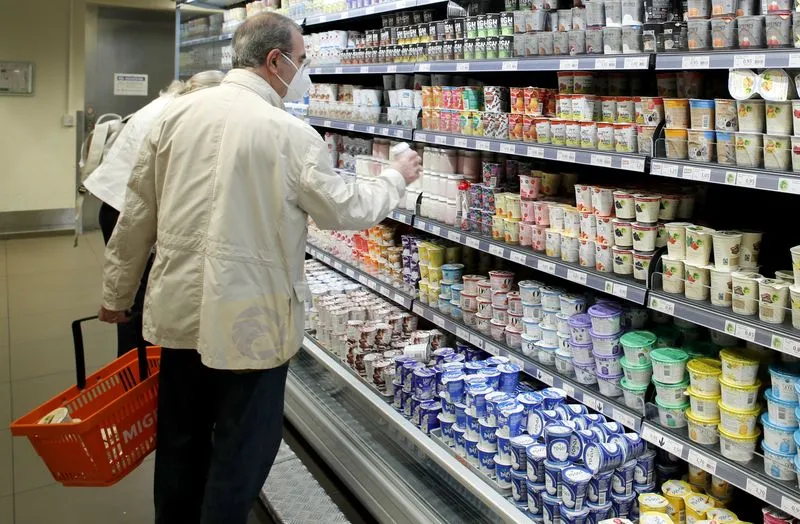简体中文
繁體中文
English
Pусский
日本語
ภาษาไทย
Tiếng Việt
Bahasa Indonesia
Español
हिन्दी
Filippiiniläinen
Français
Deutsch
Português
Türkçe
한국어
العربية
Swiss inflation in June tops 3%, highest since 2008
Abstract:Swiss consumer prices rose 3.4% in June, more than economists had expected and the first time inflation in Switzerland has topped 3% since July 2008.

Swiss consumer prices rose 3.4% in June, more than economists had expected and the first time inflation in Switzerland has topped 3% since July 2008.
The reading was the fifth month in a row that prices have risen above the central bank's target for price stability.
Prices rose 0.5% versus May as fuel, heating oil and vegetables became more expensive. Prices for red wines and salads decreased.
Swiss prices had increased in May by their highest level in nearly 14 years. The consumer price index rose by 2.9% compared with a year earlier as transport, food and drinks became much more expensive in a country noted for its historically low inflation.
Ongoing inflationary pressure means further monetary policy tightening will likely be needed, Swiss National Bank Chairman Thomas Jordan said last month after the central bank raised its interest rate for the first time in 15 years.
“We published a new inflation forecast. If you interpret it correctly, you see that there's a certain need probably to tighten further,” Jordan told a conference in Zurich.
For more Forex news, please download WikiFX- the Global Forex Regulatory Inquiry APP.
Disclaimer:
The views in this article only represent the author's personal views, and do not constitute investment advice on this platform. This platform does not guarantee the accuracy, completeness and timeliness of the information in the article, and will not be liable for any loss caused by the use of or reliance on the information in the article.
Read more

Soft Inflation, Firm Yields: Fed Rate Cut Delayed to Year-End
The U.S. bond market initially rallied on cooling inflation but lost steam as Wall Street bet on later rate cuts. Fed policy expectations now lean toward a December easing, dampening gold and boosting equities.

When Tariffs Trigger Turmoil: 10 Past Trade Wars That Rearranged the World
Far from being mere policy tools, tariffs and trade restrictions have repeatedly served as catalysts for economic upheaval, diplomatic rifts, and even armed conflict. Here are ten historically significant trade wars that altered the course of nations and the global economy.

Are We in a Retracement Or the Start of a Financial Collapse?
As markets fluctuation in uncertain times and headlines grow darker, investors are left asking a crucial question: Is this a temporary downturn or something far worse? The terms bear market, recession, and depression are often thrown around interchangeably, but they represent very different levels of economic pain. Read this article to understand the differences between all three.

Why Fed Keeps Interest Rates Unchanged, How Does It Affect To Forex Market?
Fed keeps interest rates at 4.25%–4.50%, impacting forex market. Dollar may rise as tariffs loom. Explore why rates unchanged and forex effects.
WikiFX Broker
Latest News
SkyLine Guide 2025 Malaysia: 100 Esteemed Judges Successfully Assembled
Vantage Markets Review 2025: Trusted Forex and CFD Trading Since 2009
Why STARTRADER Is Popular Among Traders?
A Guide to Intraday Forex Trading You Can't Miss Out
CONSOB Blocks Access to 13 Unauthorized Investment Websites
TradingPRO: A Closer Look at Its Licences
The world could be facing another ‘China shock,’ but it comes with a silver-lining
New SEBI Regulations on Intraday Trading
Everything You need to know about Barath Trade
IronFX Broker Review 2025: A Comprehensive Analysis of Trustworthiness and Performance
Currency Calculator


